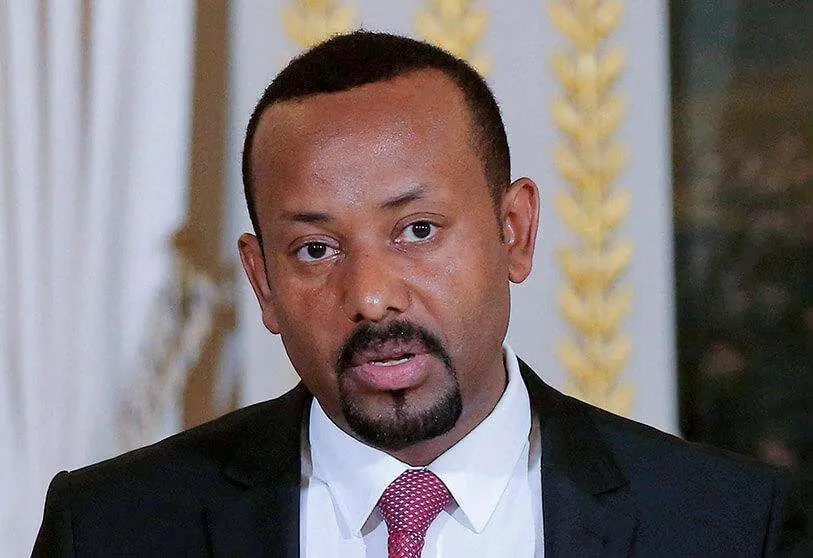Ethiopia declares national state of emergency as TPLF advances towards the capital

On 4 November 2020, just over a year ago, Ethiopian Prime Minister Abiy Ahmed launched a military campaign in the north of the country against the Tigray People's Liberation Front (TPLF). The rebels had challenged the central government by holding early elections that did not meet with the approval of the head of government, who had postponed them because of the pandemic. However, the casus belli was the insurgents' attack on the federal army base in Mekele, the regional capital, which resulted in several deaths.
Abiy launched the offensive convinced that victory would be a matter of days. But 365 days have passed and the conflict remains entrenched. Indeed, the balance has shifted in recent weeks in favour of the Tigrayan rebels, who have positioned their forces just 320 kilometres from Addis Ababa after advancing on the northern region of Amhara and seizing the towns of Dessie and Kombolcha. They have thus seized a key trade route to choke the capital and mitigate the famine in Tigray.
This setback has prompted the government to declare a new nationwide state of emergency for the next six months. The ministers of Justice and Communications Services, Gedion Timoteos and Legese Tulu, announced the measure with the aim of preserving the security of Ethiopian citizens. A proposal that received final approval 48 hours later in parliament, where Abiy maintains a reinforced majority after his landslide victory in the June elections.

The executive leader again urged the Ethiopian people to take up arms to fight the TPLF. This call reflects the structural weakness of the forces loyal to Addis Ababa. For their part, Tigrayan rebels confirmed contacts with the Oromo Liberation Army (OLA), a splinter group of the Oromo Liberation Front (OLF), the pro-independence group fighting for self-determination for Ethiopia's majority ethnic group. If they joined forces, the conflict would spread throughout the country.
The failure of the forces loyal to the prime minister, unable even to regain positions, can be explained by the large presence of ethnic Tigrayans in the federal army. A factor that justifies the frontal rupture that occurred within the corps and the enormous offensive and defensive capacity of the rebel forces. Although in this scenario, Ethiopian government forces are backed by the Eritrean army, a neighbour with which Abiy made peace after its independence from Ethiopia in the early 1990s.
There are reasonable grounds to believe that both sides have committed war crimes, crimes against humanity and ethnic cleansing, according to UN High Commissioner for Human Rights Michelle Bachelet. Most of the violations recorded up to June were allegedly committed by Ethiopian forces and their Eritrean allies while occupying Tigray. The TPLF also allegedly committed several massacres. Since the outbreak of the conflict, the organisation, which has dominated Ethiopian politics for two decades, has been considered "terrorist" by Addis Ababa.

To understand the complex dynamics of alliances, until Abiy Ahmed came to power in 2018, the Tigrayan ethnic group had controlled power since 1991 under the TPLF, turning the country into an oasis of political and economic stability in the middle of a volatile region. Behind closed doors, however, Prime Minister Meles Zenawi repressed the opposition, curtailed freedom of expression and deployed a torture regime. Tigrayans subjugated the country despite being the third largest ethnic group after the Oromo and Amhara, conditions that fuelled ethnic chauvinism.
Then Abiy Ahmed appeared on the scene. A young, dynamic, ethnic Oromo leader with ambitious plans to modernise and liberalise the country. Once Prime Minister, Abiy ended the persecution of dissent, freed thousands of political prisoners and promoted freedom of expression. A performance that earned him the Nobel Peace Prize in 2019. But economic and cultural openness was nipped in the bud by the first ethnic challenge.
"Unless all parties in Ethiopia make the necessary concessions to bring about a cessation of hostilities (...) thousands more people will die in the midst of conflict and famine. More war would also threaten the authority of the federal government and even the integrity and stability of the Ethiopian state," reports the International Crisis Group. "Its collapse would have disastrous consequences not only for many of Ethiopia's 110 million people, but also for other nations in the Horn of Africa, all of which border the country.

But there is no sign of the conflict coming to a halt. Renewed fighting and aggressive rhetoric are preventing understanding. The parties recognise each other, and the dynamics are not flattering. Thus, Ethiopia, once a key US ally in the crusade against terrorism in the Horn of Africa, as well as a stronghold of stability on the continent, is struggling to avoid a collapse that seems ever closer.








